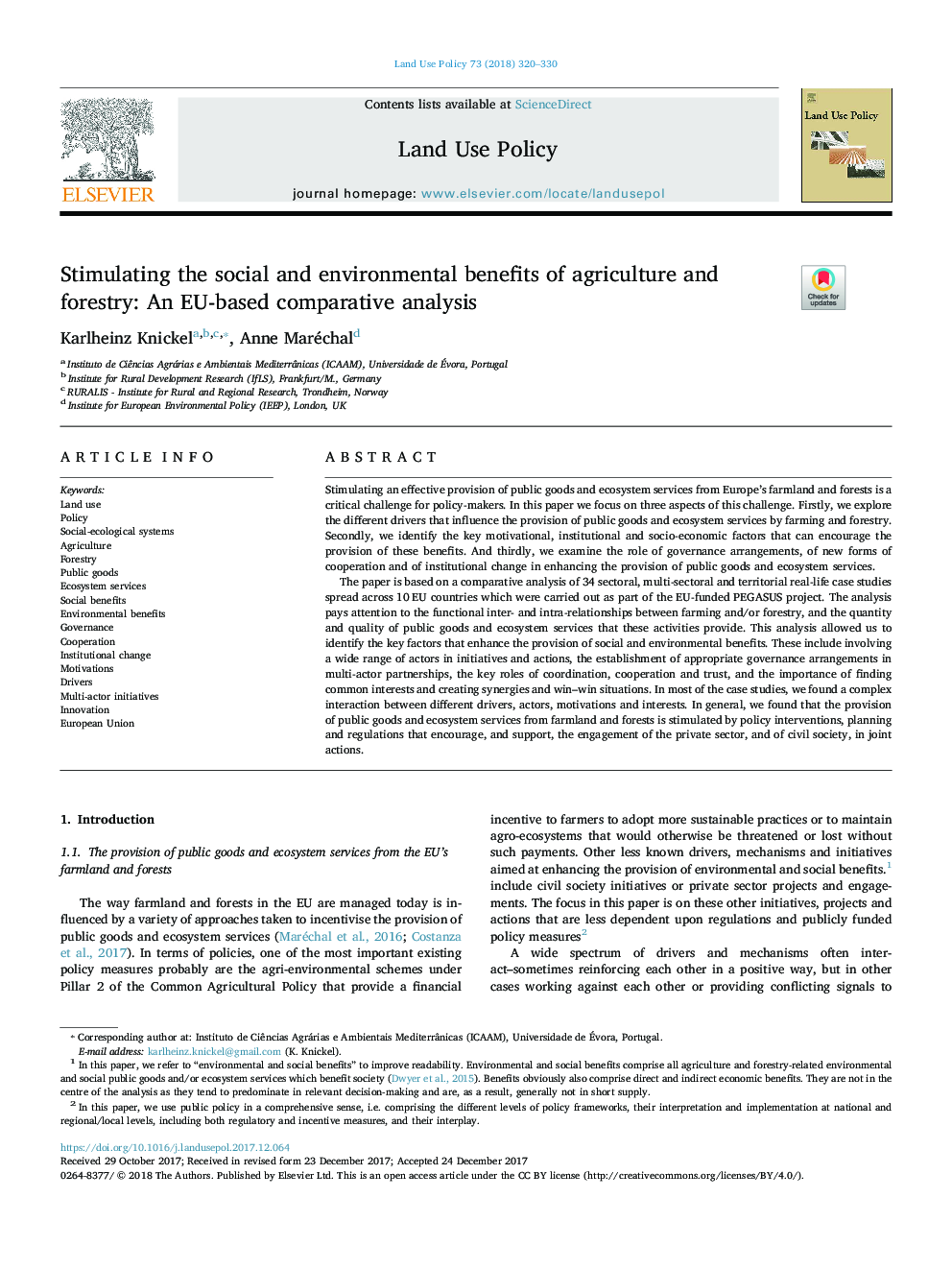| Article ID | Journal | Published Year | Pages | File Type |
|---|---|---|---|---|
| 6546539 | Land Use Policy | 2018 | 11 Pages |
Abstract
The paper is based on a comparative analysis of 34 sectoral, multi-sectoral and territorial real-life case studies spread across 10â¯EU countries which were carried out as part of the EU-funded PEGASUS project. The analysis pays attention to the functional inter- and intra-relationships between farming and/or forestry, and the quantity and quality of public goods and ecosystem services that these activities provide. This analysis allowed us to identify the key factors that enhance the provision of social and environmental benefits. These include involving a wide range of actors in initiatives and actions, the establishment of appropriate governance arrangements in multi-actor partnerships, the key roles of coordination, cooperation and trust, and the importance of finding common interests and creating synergies and win-win situations. In most of the case studies, we found a complex interaction between different drivers, actors, motivations and interests. In general, we found that the provision of public goods and ecosystem services from farmland and forests is stimulated by policy interventions, planning and regulations that encourage, and support, the engagement of the private sector, and of civil society, in joint actions.
Keywords
Related Topics
Life Sciences
Agricultural and Biological Sciences
Forestry
Authors
Karlheinz Knickel, Anne Maréchal,
